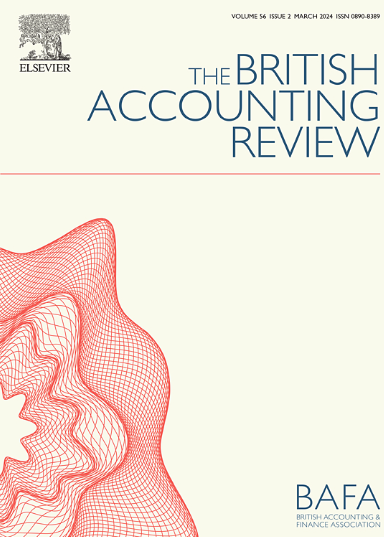强制性企业社会责任支出、家庭控制和债务成本
IF 9.4
3区 管理学
Q1 BUSINESS, FINANCE
引用次数: 0
摘要
本文研究了企业遵守强制性企业社会责任(CSR)支出规定对其债务成本的影响,以及这种影响随家族控制权和所有权的变化而变化。通过对印度上市企业的纵向抽样调查,我们发现,遵守企业社会责任支出规定会降低债务成本,而且这种关系在非家族企业中比在家族企业中更为明显。此外,家族企业的衰减效应在由家族控制和管理、家族所有权较大或由非创始人首席执行官管理的企业中更为明显。我们还发现,合规在降低借贷成本方面的功效在监管授权之前就参与企业社会责任活动的企业中更强。我们的结果经得起内生性检验、不同估算方法和其他衡量标准的检验。总之,我们证明了企业社会责任合规通过信号传递和筛选两种渠道传递了有关企业特征的有价值信息,从而影响了债务人对企业风险的评估,并影响了他们的借贷决策。然而,债务人的评估和决策因企业的所有权和控制结构而异。本文章由计算机程序翻译,如有差异,请以英文原文为准。
Mandatory corporate social responsibility spending, family control, and the cost of debt
This paper examines how corporate compliance with the mandatory corporate social responsibility (CSR) spending regulation affects its cost of debt and how this effect varies with family control and ownership. Utilizing a longitudinal sample of Indian listed firms, we document that compliance with the CSR spending regulation leads to a lower cost of debt, and this relationship is more salient in non-family firms than in family firms. Moreover, the attenuation effect of family firms is stronger in firms both controlled and managed by families, with larger family ownership or managed by non-founder CEOs. We also find that the efficacy of compliance in reducing the cost of borrowing is stronger in firms engaged in CSR activities before the regulatory mandate. Our results are robust to endogeneity tests, different estimation methods, and alternative measures. Overall, we demonstrate that CSR compliance conveys valuable information on firm characteristics through both signaling and screening channels, consequently affecting debtholders' evaluation of firm risk and shaping their lending decisions. However, debtholders' assessments and decisions vary with firms’ ownership and control structure.
求助全文
通过发布文献求助,成功后即可免费获取论文全文。
去求助
来源期刊

British Accounting Review
BUSINESS, FINANCE-
CiteScore
8.60
自引率
3.90%
发文量
39
审稿时长
76 days
期刊介绍:
The British Accounting Review*is pleased to publish original scholarly papers across the whole spectrum of accounting and finance. The journal is eclectic and pluralistic and contributions are welcomed across a wide range of research methodologies (e.g. analytical, archival, experimental, survey and qualitative case methods) and topics (e.g. financial accounting, management accounting, finance and financial management, auditing, public sector accounting, social and environmental accounting; accounting education and accounting history), evidence from UK and non-UK sources are equally acceptable.
 求助内容:
求助内容: 应助结果提醒方式:
应助结果提醒方式:


